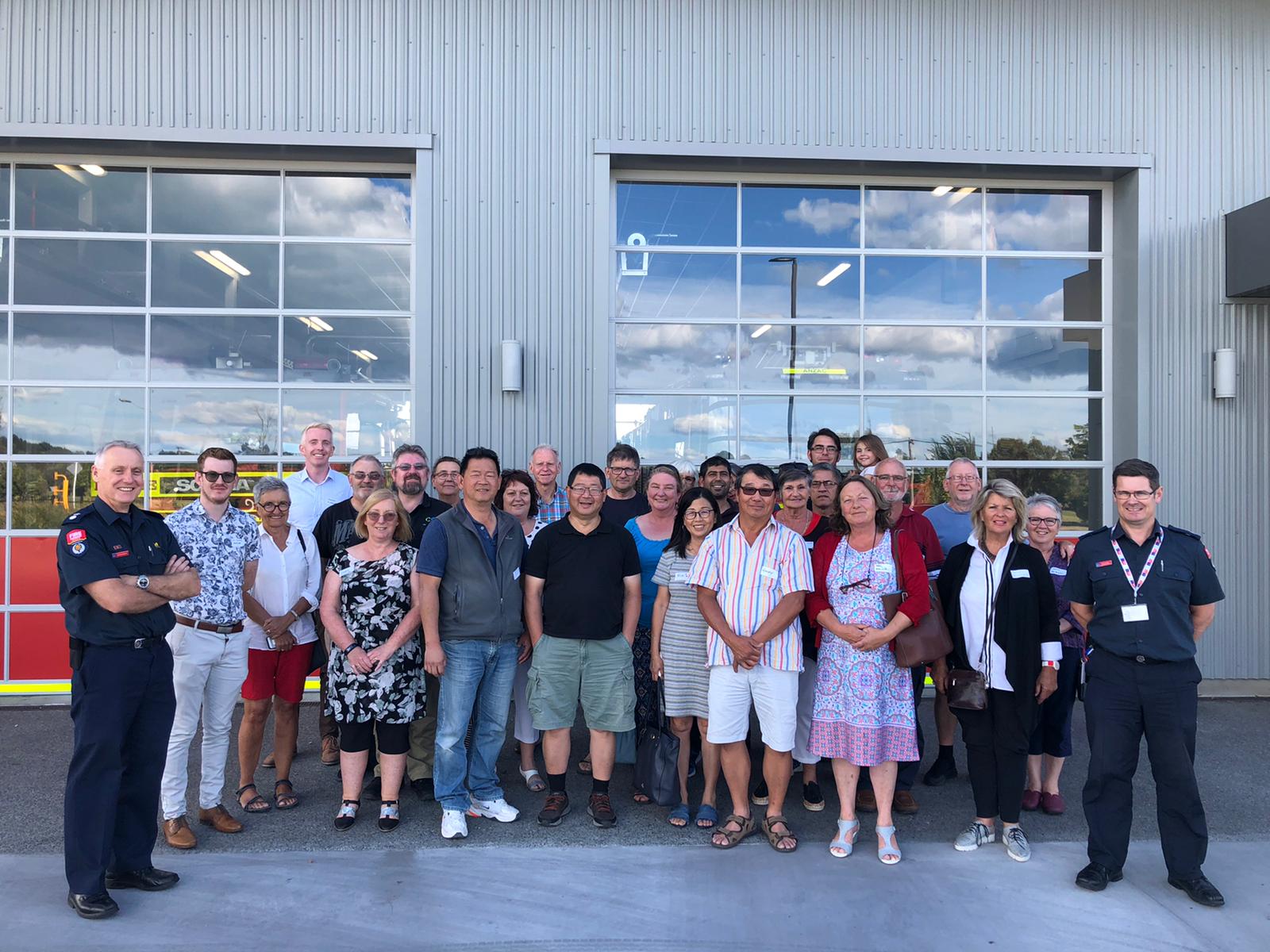Fire and Emergency New Zealand and Airbnb deliver safety workshops

Airbnb and Fire and Emergency New Zealand have together delivered workshops to educate New Zealand hosts on fire safety before the busy summer holiday season.
This national series of safety events were developed as part of an ongoing arrangement that began in 2018 to help Airbnb hosts in New Zealand be better prepared for emergencies and natural disasters.
“The safety of Airbnb hosts, guests and the wider community is our top priority,” said Derek Nolan, Airbnb’s Head of Public Policy for Australia and New Zealand.
“We’re proud to work with Fire and Emergency NZ to help ensure hosts not only make their homes safer, but are well-equipped to also help educate visitors to New Zealand on how to be prepared in case of an emergency.”
The workshops, held in Auckland, Wellington, Christchurch and Queenstown, provided practical tips for Airbnb hosts on how to make their homes fire safe, and to help their guests be better prepared for natural disasters.
Fire and Emergency NZ is a unified, national organisation that provides fire, rescue and emergency services across urban and rural New Zealand. Community education plays a key role in its work reducing the incidence of unwanted fires and improving emergency preparedness.
Airbnb hosts who attended the workshops were encouraged to sign up for a free home fire safety visit, a service offered nationally by Fire and Emergency NZ.
“We left the workshop more aware of the risk factors that might cause a fire and found the safety tips very practical,” said Ross, an Airbnb host from Christchurch.
Hosts were also introduced to Airbnb’s Open Homes Program, which is activated during natural disasters in New Zealand to provide free Airbnb accommodation to people in need of temporary shelter. In February this year, more than 180 Airbnb hosts offered to house evacuees and emergency workers during the Nelson fires.

TOP FIRE SAFETY TIPS
- Build an escape plan. A house fire can kill you in less than five minutes, which is all it takes to make a plan tailored for your house.
- In a fire, get everybody out, call 111 and stay out.
- Install and maintain working photoelectric smoke alarms.
- Consider having a fire extinguisher and fire blankets in your home to be better prepared.
- Request a free home fire safety visit by calling 1800 NZ FIRE (1800 693 473).
- Ensure your address is clearly visible from the road, so that emergency services can find you if called to your home.
- Discuss fire safety with your neighbours and share contact details so you can act in an emergency.
- Discuss fire safety with anyone visiting your home. Outline your escape plan and make sure they understand what to do in an emergency. Whether you have a small urban home or a large property, it’s important you do your part to keep people safe.
- Complete a home checklist, visit https://fireandemergency.nz/at-home/ for more information.
HOME SAFETY CHECKLIST
Kitchen
- The stovetop is clean and free of any spilled fats or burnt foods.
- The rangehood filters have been cleaned recently.
- There’s a fire extinguisher near the kitchen and I know how to use it.
Living room and bedrooms
- There are smoke alarms installed in every bedroom, living area and hallway in the house – ideally, long-life photoelectric ones.
- Matches, lighters or other fire starting tools are stored out of reach of children.
- Powerpoints or multi-boards are not overloaded with appliances that use a lot of power, like heaters.
- Lights are fitted with the correct bulb size and rating (in watts).
- Electric blankets are in good condition, and not more than 5 years old.
- There’s a torch near every bed (in case of emergencies).
- The fireplace has a screen with a proper fireguard, and the chimney has been checked and/or swept in the last year.
Outdoors
- BBQ fittings are tight and secure, and there’s at least 1 metre of clear space around the BBQ. Use the soap bubble test to make sure there are no leaks.
- Flammable liquids in sheds or garages are stored in appropriate containers.
Laundry
- There’s no lint built up in the clothes dryer filter (you should check this after every use).
- The clothes dryer has been checked recently by a professional to ensure there’s no dust built up in the back (don’t open up the dryer yourself, as this will breach the warranty).
- There’s plenty of ventilation and air space around the clothes dryer.
Fire hazards in the community
- If you are unable to resolve a potential fire hazard directly with the owner/occupier, you can let Fire and Emergency New Zealand know about your concern by completing this online form.